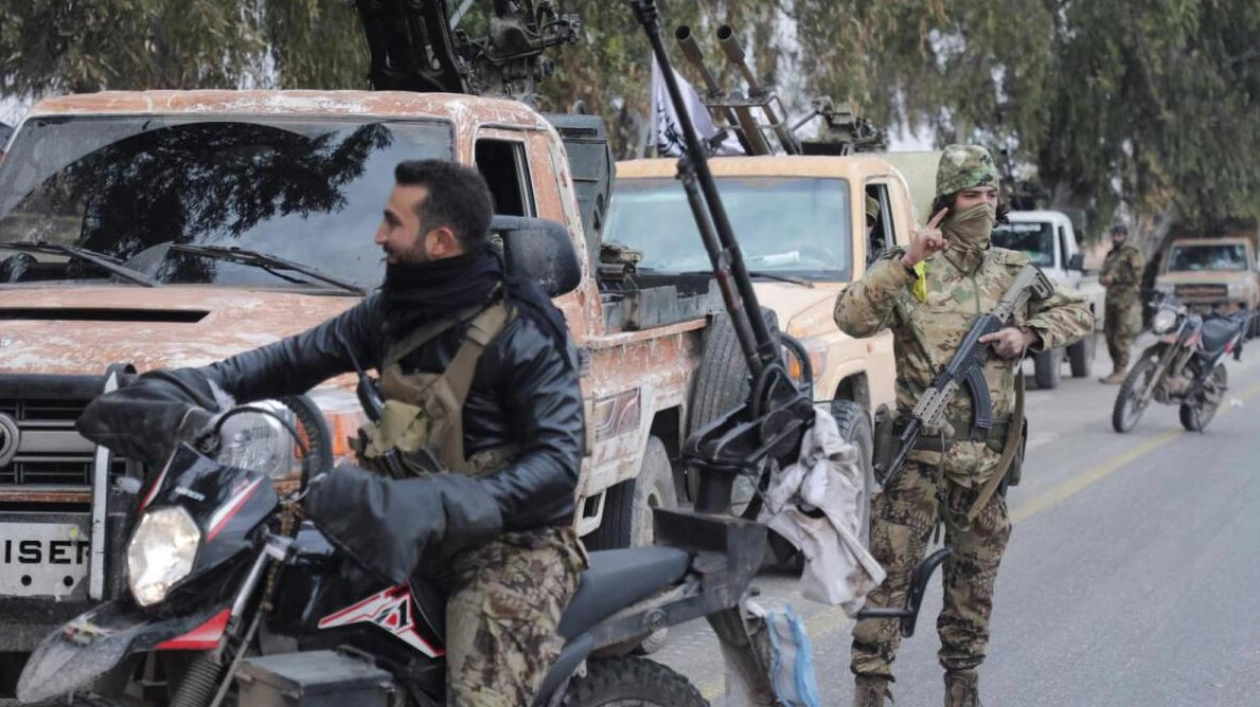Rebel fighters in Syria's Homs countryside captured by Reuters.
On Saturday, Syrian rebels advanced into the suburbs of the crucial city of Homs, according to sources, continuing their rapid week-long push as front lines crumble nationwide and government forces struggle to maintain President Bashar al-Assad's 24-year rule. Both a Homs resident and army and rebel sources reported that the insurgents had penetrated government defenses from the north and east of the city. The Syrian military has yet to comment on these developments.
Intense battles have been raging around the northern part of Homs since late Friday, with government forces bolstering their positions and launching heavy airstrikes against the rebels. Simultaneously, insurgents have nearly taken control of the entire southwest within 24 hours and have advanced to within 30km (20 miles) of Damascus, as government forces retreat to more defensible positions, according to rebels.
In a potential sign of renewed unrest in the capital, protesters in a Damascus suburb reportedly tore down a statue of Assad's father, with video evidence showing the statue being dismantled. Assad remains in Damascus, as reported by Syria's state news agency.
Since the rebels' incursion into Aleppo a week ago, government defenses have rapidly deteriorated as insurgents have captured major cities and re-emerged in areas where the rebellion had previously waned. In addition to seizing Aleppo, Hama, and Deir al-Zor, rebels claim to have taken southern Quneitra, Deraa, and Suweida.
The dual threats to strategically vital Homs and the capital Damascus now pose a significant existential threat to Assad's long-standing rule in Syria and the continued influence of his main regional ally, Iran. The rapid pace of these events has alarmed Arab capitals and raised concerns about a new wave of regional instability.
Syria's civil war, which began in 2011 as a revolt against Assad's rule, has drawn in major external powers, provided a haven for militants plotting attacks worldwide, and displaced millions of refugees into neighboring countries. Assad has long relied on allies to suppress the rebels, with Russian warplanes conducting bombings and Iran sending forces, including Lebanon's Hezbollah and Iraqi militias, to support the Syrian military and attack insurgent strongholds.
However, Russia's focus has shifted to the war in Ukraine since 2022, and Hezbollah has suffered significant losses in its own conflict with Israel, significantly limiting their ability to support Assad. The foreign ministers of Russia, Iran, and Turkey, the main backer of the rebels, met on Saturday and agreed on the importance of Syria's territorial integrity and the need to restart a political process, though no concrete steps were indicated.
Russia's naval and air bases in Syria are crucial not only for supporting Assad but also for projecting influence in the Mediterranean and Africa. While Moscow has been conducting intense airstrikes in support of government forces, it remains unclear whether it can easily escalate this campaign. Iran has indicated it may send forces to Syria, but any immediate additional assistance would likely depend on Hezbollah and Iraqi militias.
In Homs, a resident reported seeing rebels advance past a Syrian Air Force base in the north of the city, considered a major defensive area. Both an opposition figure in contact with rebel command and a Syrian army source confirmed the insurgents' presence inside the city. Airstrikes heavily targeted rebel positions north of Homs after the insurgents reached the city outskirts late on Friday, according to both sides.
Seizing Homs, a critical crossroads between the capital and the Mediterranean, would sever Damascus's connection to the coastal stronghold of Assad's minority Alawite sect and Russia's air and naval base. In the south, the fall of Deraa, Suweida, and Quneitra could pave the way for a coordinated assault on Damascus, the seat of Assad's power.
The Syrian military has retreated as far as 30km (20 miles) from Damascus to regroup, according to a Syrian army officer. In the east, a US-backed alliance led by Syrian Kurdish fighters captured Deir el-Zor, jeopardizing Assad's land connection to allies in Iraq. In a sign of government forces' collapse in the east, around 2,000 Syrian soldiers crossed the border into Iraq seeking refuge, according to the mayor of Iraqi border town al-Qaem.
Source link: https://www.khaleejtimes.com






